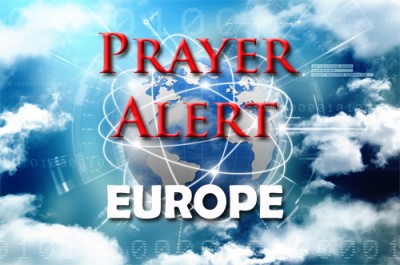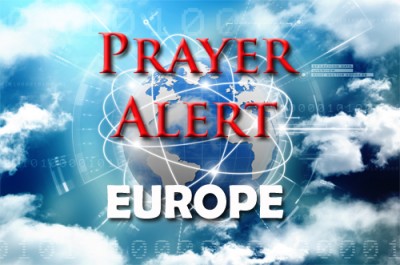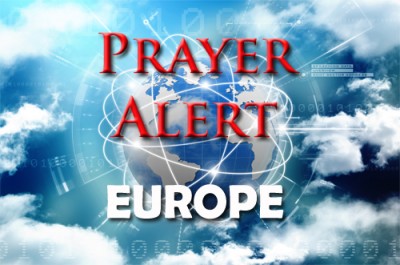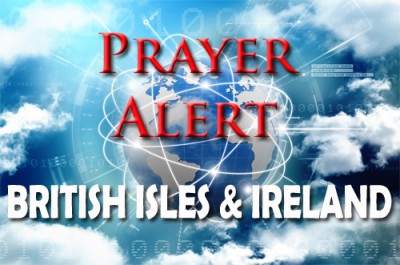A Swedish Christian writes, ‘Sweden has always wanted to have a generous immigration policy and grant asylum to all who need it. Therefore, many refugees have entered Sweden during the current wave. In 2015 there were 163,000 seeking asylum - a huge number for a nation with less than 10 million people and far more per capita than any other EU country. Therefore, the infrastructure finds it very difficult to cope with the demands for accommodation, handling of applications, schooling in Swedish and otherwise, health care, validation of professionals and helping people to find a job. The result is a long frustrating wait of up to two years for the outcome of an application and a rise of violence both inside and outside of asylum accommodation. Outside extremist groups/individuals opposed to the influx of refugees have been setting fire to asylum accommodation. Many incidents are also reported of Christian refugees being attacked and threatened. The churches are taking up the challenge and do a lot to help, for example making friends, teaching Swedish, arranging activities.’
Charges against street preacher fabricated
19 Feb 2016The Crown Prosecution Service has dropped all charges against Michael Jones, a street preacher of Hornsea, who was arrested and charged for comments made about Islam and IS. The accusations of shouting ‘All Muslims are terrorists, they should not be allowed in this country, Islam is not a religion it’s terrorism’ and ‘Islam does not preach the Bible’ were proven to be fabricated by a passer-by and a woman on her lunch break. Thankfully, Michael made a recording of all of his preaching, without which he would quite likely have been convicted and would now have a criminal record. Andrea Williams from the Christian Legal Centre said, ‘Michael was just exposing the evil of IS, as many others have attempted to do. He was faulted merely for linking the actions of this group back to their ideological foundations.’
Over the years Prayer Alert readers have prayed for justice for the poor slave-labourers in India. Last week, an Indian court made great strides in protecting the poor by convicting two brick kiln owners and two supervisors who had forced families - including children as young as 5 - to work as bonded labourers. The four were arrested in two separate cases. These men lured poor families with promises of good jobs and fair pay. But the labourers and their children were trapped with violence and forced to work as slaves in order to pay off an ever-growing false debt. ‘Large advances are no reason to hold someone against their will,’ said the legal director with International Justice Mission in Bangalore. Courts saw the clear exploitation that had taken place and found the kiln owners and supervisors guilty under multiple sections of India’s Bonded Labour System and sentenced to two years imprisonment and ordered to pay a fine.
In his last National Prayer Breakfast speech while in office, President Obama spoke of how his faith overcomes his fears. ‘For me, and I know for so many of you, faith is the great cure for fear: Jesus is a good cure for fear.’ He said he is comforted by Scripture and the faith of others, and has lately focused on 2 Timothy: ‘For God has not given us a spirit of fear, but of power and of love and of a sound mind.’ The president said, ‘What better time in these changing and tumultuous times to have Jesus standing beside us, steadying our minds, cleansing our hearts and pointing us towards what matters!’ Hollywood power couple Roma Downey and Mark Burnett, the other keynote speakers, said that with God’s help our world can heal some of the hurts that wound us and the confusion that divides us, but it begins with us.
Incredible divine moments
12 Feb 2016‘Jesus' presence was stronger than I have ever felt, in that little dirty room. There were about 25 people in there, and Jesus' presence was stronger than any conference, any prayer room or camp-high moment. Jesus was there in the middle of the desert, in Iraq, in the dirt, with Muslims. He is attracted to the broken-hearted, the contrite, the desperate. The King of Heaven was right there with the poor in spirit.’ Tyler Connell is with the Ekballo Project and has been touring college campuses around the USA, sharing stories and videos from his most recent trip to the Middle East, where he documented a dramatic move of God among Muslims, particularly refugees. Back in the States, when speaking on college campuses, he saw the presence of Jesus break in and touch students, with bodies healed, people saved, and people giving their lives to serve in the mission field.
The prime minister of Slovakia, Robert Fico, says, ‘Overlooking tension, nervousness and fear that the EU does not have a real solution to the migration crisis while the migration wave continues could have catastrophic consequences. 2016 will be the year when the EU will either get the migration crisis under control or collapse.’ Tackling the flow of refugees is prominent in his campaign for Slovakia's 5 March parliamentary election. He argues for strengthening EU border protection, and has filed a lawsuit against EU decisions to redistribute 160,000 asylum seekers among member countries. His immigration stance resonates with the country’s 5.4 million Catholic voters. Fico's statements come ahead of next week's Visegrad meeting of central European countries. The Visegrad Group is an alliance of Czech Republic, Hungary, Poland and Slovakia which aims to further their European integration and to advance military, economic and energy cooperation. The group has taken a tough stance on migration, and is at odds with EU neighbours over how to deal with the influx of over one million migrants last year.
The world's tourism map is being redrawn as holiday-makers switch preferences, prompted by terror attacks and migrant crises in some European countries. Euromonitor research said they expect countries such as Greece, Portugal and Spain to benefit considerably from the situation, offering similar weather and security. However, the sudden surge in demand is leading to higher prices in these destinations. ‘Hotel owners tell clients, “Instead of charging 50 euros per double room, I'm going to charge 55. Take it or leave it: if you don't want it, others will”', said Olivier Petit at the ‘In Extenso’ firm. The migrant crisis has also taken a heavy toll on Greek islands, once a very safe bet for operators, but where masses of refugees have landed, scaring tourists. ‘The Greek islands, especially Kos, have been severely damaged, as holiday-makers feel uneasy about the situation,’ according to Euromonitor’s data.
‘Safe Haven’ for Muslim-background believers
12 Feb 2016Last November, Christian Concern launched an initiative to protect those in the UK wanting to leave Islam but fearing the consequences. ‘Safe Haven’ (SH) was set up in response to the brutal treatment of some who have left Islam and become Christians, offering confidential advice and support and even help for individuals to relocate. This week an advertising campaign to raise support and funding has been launched to create a national network of safehouses for Christians who’ve converted from a Muslim background and are living under threat of violence for freely choosing to follow Jesus. SH does this mainly by connecting victims with those who can provide a safe place to stay - a secure and loving home away from the hostility. It acts as a go-between, bringing together those in need with those offering help. SH needs more individuals who can provide help: it is keenly aware of the need for anonymity in these kinds of situations, and maintains strict confidentiality in all its dealings with both victims and helpers. It also needs more funding to support this growing need. See also:







